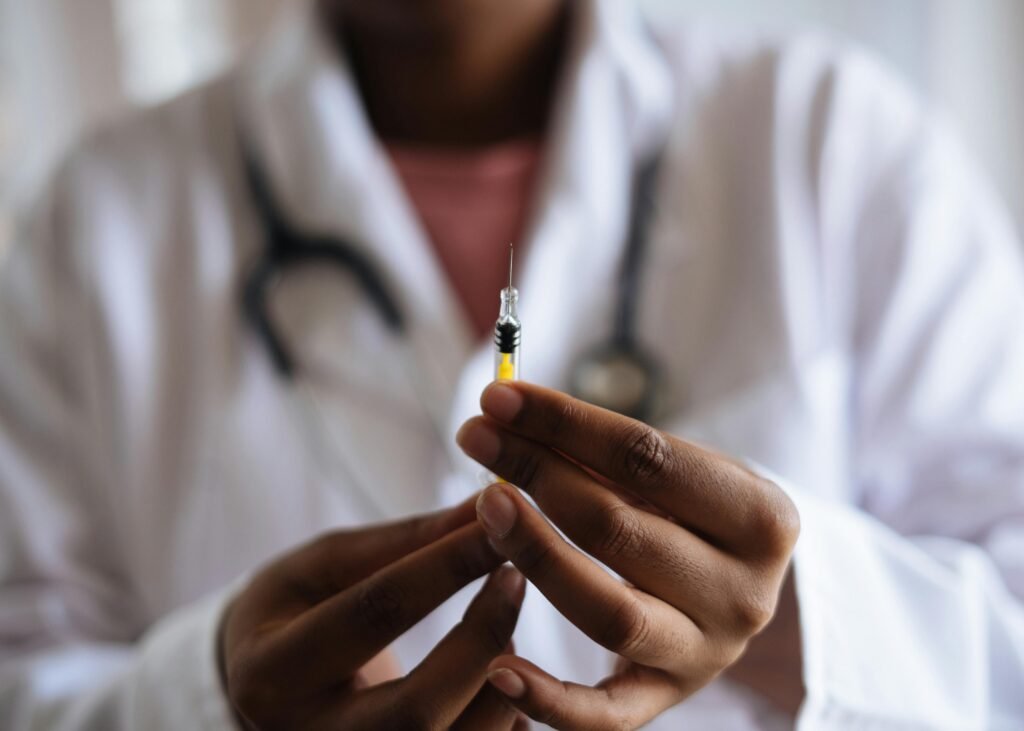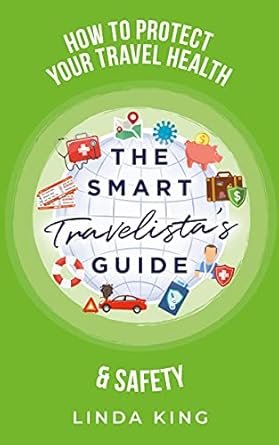Introduction to Travel Health
Traveling to new destinations often brings excitement and adventure, but it also necessitates a thoughtful consideration of health and safety. The significance of maintaining good health while traveling cannot be overstated, as various factors can pose risks to well-being. Understanding travel health encompasses a wide range of practices, including staying informed about vaccine recommendations and familiarizing oneself with local health practices.

Before embarking on a journey, travelers should be aware of the necessary vaccinations to protect themselves from infectious diseases that may be prevalent in their destination. The Centers for Disease Control and Prevention (CDC) and the World Health Organization (WHO) provide essential guidelines and recommendations tailored to specific geographical areas, helping travelers determine which vaccines, such as hepatitis A, typhoid, or yellow fever, may be required or advisable. Additionally, certain countries may have entry requirements, making vaccinations a vital component of pre-travel preparations.
However, it is equally important for travelers to acknowledge and respect local health practices and remedies that could enhance their overall well-being during their trip. Traditional medicine and local treatments often offer unique perspectives on health and can serve as valuable tools for managing minor ailments. By integrating official vaccine recommendations with an understanding of local remedies, travelers can better navigate potential health challenges and enhance their overall travel experience.
In the following sections, this guide will provide practical advice on travel vaccines, underlining their significance while exploring various local remedies and health considerations. Emphasizing the fusion of formal health recommendations and local wisdom can empower travelers to make informed decisions, ensuring they remain healthy and safe throughout their journey.
Understanding Vaccines: Why They Matter
Vaccines play a fundamental role in the prevention of travel-related illnesses, safeguarding the health of individuals embarking on international journeys. As travelers venture to different regions of the world, they may encounter pathogens that are not prevalent in their home country. Certain diseases, such as hepatitis A, typhoid fever, and yellow fever, are endemic in specific locations, which underscores the importance of receiving appropriate vaccinations before departure. Health authorities, including the World Health Organization (WHO) and the Centers for Disease Control and Prevention (CDC), provide guidelines and recommendations based on epidemiological data to alert travelers about the necessary vaccinations required for their destination.

Vaccines work by stimulating the immune system to recognize and combat pathogens without causing the disease. When individuals are vaccinated, they develop immunity to specific illnesses, significantly reducing their risk of contracting these diseases during their travels. This proactive approach is essential, not only for personal health but also for public health, as it helps to minimize the spread of infectious diseases across borders. Vaccinations act as a crucial public health measure, especially in areas where outbreaks of vaccine-preventable diseases occur, as they create a community of individuals who are less likely to transmit diseases to others.
Moreover, some countries may require proof of vaccination for travelers arriving from certain regions, particularly those with a history of outbreaks. Compliance with such requirements is critical for ensuring a smooth entry into the destination country. Therefore, staying informed about recommended vaccines and their potential impact on health is vital for any traveler. Understanding the significance of vaccinations allows individuals to make informed decisions about their health and well-being, ultimately contributing to a safer and more enjoyable travel experience.
Key Vaccines for Popular Travel Destinations
When preparing for international travel, it is crucial to ensure that you are up-to-date with essential vaccinations tailored to your destination. Different regions pose unique health risks, necessitating a variety of vaccines to safeguard travelers from potential diseases. This guide will highlight recommended vaccines for some common travel destinations, allowing you to plan effectively for your trip.
One of the most commonly required vaccines is the tetanus vaccine. It is generally recommended for anyone traveling abroad, especially if they plan to engage in outdoor activities or visit areas with limited medical facilities. Another key vaccine is the typhoid vaccine, which is crucial for travelers visiting parts of South Asia, Africa, or areas with poor sanitation. This vaccine helps protect individuals from a serious bacterial infection that can occur through contaminated food or water.
The yellow fever vaccine is mandatory for individuals traveling to certain countries in Africa and South America. This vaccine not only protects against yellow fever but may also be required to enter specific countries, thus functioning as an import permit for travel. Additionally, vaccinations for hepatitis A and hepatitis B are advised for travelers to many regions, as they can be contracted through contaminated food, water, or sexual contact. In regions with high hepatitis prevalence, receiving these vaccinations adds an important layer of safety.
Other vaccines, such as those for malaria prevention, are also worth considering, particularly for travelers heading to tropical areas where the disease is endemic. Depending on the destination, additional vaccinations might be recommended, such as the influenza vaccine, which is especially pertinent during flu season. It is essential to consult a healthcare provider or travel clinic prior to your journey to identify specific vaccines essential for your itinerary, ensuring a safer travel experience.
Local Remedies: Understanding Cultural Practices
As we traverse the globe, exposure to diverse cultures unveils an array of traditional practices rooted in the wisdom of local populations. These practices, often comprising unique local remedies, provide insights into how residents manage health and wellness while facing common ailments. Many cultures have tapped into their surroundings, utilizing natural ingredients, time-honored techniques, and ancestral knowledge to create effective home remedies.
In regions where access to modern medicine is limited, traditional remedies serve as the first line of defense against illness. For instance, in parts of South America, indigenous tribes employ the use of medicinal plants such as cat’s claw and guarana, renowned for their purported health benefits, including enhanced immune function and increased energy. Meanwhile, in Southeast Asia, turmeric is revered not only for its vibrant color but also for its anti-inflammatory properties, often consumed in various forms or applied topically to treat a range of ailments.
Across the African continent, local communities might apply shea butter for its moisturizing properties while simultaneously utilizing its protective qualities against skin infections. Additionally, the practice of herbal teas infusions is a common approach, employing local herbs like rooibos to help with digestion issues. These remedies are frequently passed down through generations, embodying a cultural connection to the land and its resources.
Furthermore, travelers can benefit from understanding these local remedies in the context of their journeys. Engaging with local cultures and their healing practices not only enriches one’s travel experience but can also serve as a complementary approach to conventional medicine, particularly when adapting to unfamiliar environments. By respecting and integrating local knowledge, travelers can enhance their well-being while fostering connections with the communities they visit.
Blending Official Advice with Local Wisdom
When traveling, it is crucial to understand that official vaccine recommendations and local remedies offer complementary approaches to health and wellness. Vaccines are a cornerstone of preventative medicine, protecting travelers against various infectious diseases specific to destinations. These formulations are supported by extensive clinical research and public health data, aimed at maximizing safety for travelers. However, integrating local remedies into your health strategy can enrich your travel experience and contribute to your overall well-being.
Local remedies often stem from centuries of indigenous wisdom and practices that are unique to particular regions. These treatments may include herbal medicine, dietary adjustments, and traditional healing practices that have been passed down through generations. While they should not replace vaccines, these methods can be valuable for enhancing immunity and alleviating minor ailments encountered during travel. For example, consuming locally sourced ginger or garlic is believed to improve digestion and boost immunity, complementing the protection offered by vaccines.
To safely incorporate local practices into your health strategy, it is imperative to conduct thorough research prior to your travels. Consulting with healthcare professionals, particularly those knowledgeable about both vaccines and local medicinal practices, can provide crucial insights. Consider seeking advice from those who have traveled to your destination or local health practitioners who understand the pulse of the community. This dual approach not only prepares you for potential health risks but also allows you to respect and engage with the local culture.
Ultimately, achieving a balance between official vaccine protocols and local remedies can empower travelers, enabling them to enjoy their journeys with enhanced confidence and awareness. A well-rounded health strategy that utilizes both science and tradition ensures travelers are prepared for the unpredictability of health challenges in new environments.
Personal Stories and Anecdotes
Traveling to unfamiliar destinations often comes with its own set of challenges, particularly when it comes to health precautions. Many travelers have shared their experiences regarding the importance of vaccines and local remedies. One such account is from Sarah, a seasoned traveler who ventured into South America. Before her trip, she diligently received all the recommended vaccines, including yellow fever, which is essential for several countries in the region. Sarah recounted a particularly challenging moment when she fell ill with a gastrointestinal infection. Despite her vaccination efforts, it was a local remedy—a herbal tea made from ginger and mint—that provided her with much-needed relief, showcasing the potential of traditional methods alongside modern medical practices.
Similarly, John shared his experience during a trip to Southeast Asia. He had taken every precaution, including receiving vaccinations for typhoid and hepatitis A. However, once in the country, he learned from locals about a traditional remedy made with turmeric and honey for alleviating flu-like symptoms. When he developed a mild cold, he initially dismissed the residents’ suggestions, opting for over-the-counter medications instead. When these failed to provide relief, he decided to try the local remedy out of curiosity. To his astonishment, John found that the concoction not only eased his symptoms but also enriched his understanding of local health practices.
Travelers’ anecdotes like these underscore the reality that even when vaccines provide critical protection, the integration of local remedies can enhance one’s travel experience. While vaccines are essential in preparing for various health risks, personal stories reveal how traditional remedies can offer added comfort and assist in navigating the diverse tapestry of health practices worldwide. Balancing vaccinations with an open mind towards local solutions can facilitate safer and more enjoyable travels.
Travel Tips for Health and Safety
Planning a trip involves numerous considerations, especially when it comes to prioritizing health and safety. One of the first steps should be to evaluate the required travel vaccines pertinent to your destination. Different regions have specific vaccine recommendations based on prevalent diseases, and travelers should consult healthcare professionals well in advance. Ideally, vaccines should be administered at least 4 to 6 weeks before departure, allowing enough time for the body to build immunity.
In addition to vaccines, researching local remedies can be beneficial, particularly if arriving in areas where particular herbs or natural treatments are customary. However, sourcing these remedies safely is crucial. It is advisable to purchase local products from reputable vendors or pharmacies, thereby ensuring their quality and efficacy. Travelers should also keep a record of any allergies or health conditions and communicate these with local healthcare providers should emergencies arise.
General hygiene practices play a significant role in maintaining health during travels. Always wash hands thoroughly with soap and water, especially before meals or after visiting public places. When soap and water are not accessible, hand sanitizer containing at least 60% alcohol can serve as an effective alternative. Be cautious when consuming food and beverages, opting only for bottled or boiled water in regions with water quality issues. Consuming well-cooked meals from hygienic establishments reduces the risk of foodborne illnesses.
Finally, it is prudent to pack a travel health kit that contains essential medications, insect repellent, and first-aid supplies. Staying informed about the health risks associated with your destination and preparing accordingly can significantly enhance your travel experience, allowing you to enjoy your journey with peace of mind.
Consulting Healthcare Professionals
Before embarking on any journey, it is crucial to consult with healthcare professionals regarding travel vaccines and local remedies. It is essential to seek personalized advice tailored to your specific health needs, as well as the destinations you plan to visit. Scheduling an appointment at least a month prior to your departure is advisable, as some vaccines require time to become effective or may need multiple doses.
During the consultation, inquire about the recommended vaccines for your intended location. Different regions present unique health risks, from diseases like yellow fever in tropical areas to hepatitis A in places with poor sanitation. Understanding which vaccinations are necessary for travel will help safeguard your health and enable you to fully enjoy your trip. Additionally, be prepared to discuss any pre-existing medical conditions or allergies that could impact your travel plans.
Another key aspect of your discussion should involve potential local remedies. While certain traditional treatments are widely regarded, their efficacy and safety may vary. Ask your healthcare provider about the suitability of local remedies in your travel destination and whether they pose any risks or interactions with medications you may be taking. They can provide insights into reliable sources for obtaining these remedies and advise whether they should be incorporated into your health plan.
In addition, it is beneficial to inform your healthcare professional about the activities you plan to engage in while abroad. Whether hiking in remote areas or swimming in natural bodies of water, your choices can influence your health and the types of precautions or vaccinations necessary. This tailored approach ensures that you receive an individualized health plan that not only aligns with your itinerary but also prioritizes your well-being during your travels.
Conclusion: Embracing Health on the Road
As we have explored throughout this guide, maintaining health while traveling is of utmost importance. The experience of visiting new destinations can be immensely enriching; however, it also presents unique health challenges that travelers must address. This makes it crucial to be proactive about health by understanding and utilizing both official recommendations regarding travel vaccines and local remedies that may enhance well-being during your journey.
Travel vaccines are often the first line of defense against various diseases that are prevalent in certain regions. By getting vaccinated in advance, travelers can significantly reduce their risk of contracting illnesses. It’s advisable to consult with healthcare professionals to obtain personalized vaccine recommendations based on your destination, health history, and planned activities. Ensuring that immunizations are up-to-date can provide peace of mind and allow for a more enjoyable experience abroad.
Alongside vaccinations, local remedies often serve as valuable knowledge for those exploring new cultures. Locals can offer insights into traditional practices that help prevent or treat common ailments, which can complement the protection provided by vaccines. Engaging with local health practices respects cultural traditions while enhancing health outcomes. By blending medical advice with local wisdom, travelers can cultivate a more holistic approach to their health on the road.
Adopting this well-rounded approach allows travelers to prepare effectively for their adventures. Continued research, openness to local culture, and consultation with medical professionals are paramount for ensuring a healthy travel experience. Ultimately, through balancing modern medicine and traditional practices, individuals can maximize their well-being and embrace the joys of travel with greater confidence and security.



